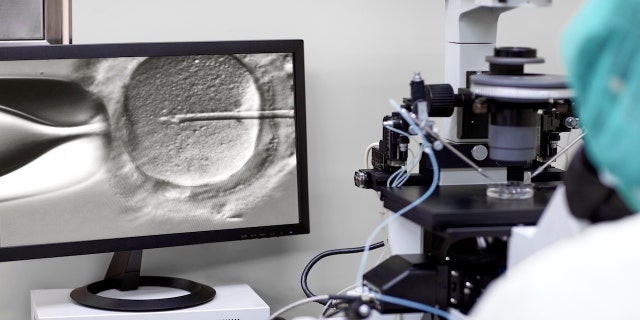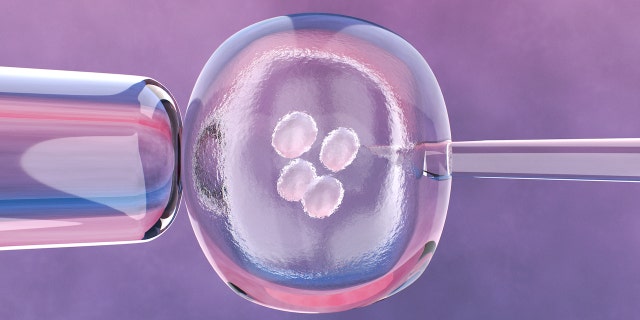It’s been shown to detect cancer, pinpoint cavities and answer medical questions — and now, artificial intelligence may help fertility doctors select the ideal embryo for in-vitro fertilization (IVF).
With one in every five U.S. adult married women unable to get pregnant after a year of trying, per the Centers for Disease Control and Prevention (CDC), many turn to IVF for help. The fertility treatment is responsible for between 1% and 2% of all births in the country.
The process, however, is not guaranteed — and it’s expensive, averaging more than $12,000 per session, according to the American Society of Reproductive Medicine. And most women require more than one attempt.
“Success rates are about 23% to 25% across all age groups, which means only one in five result in pregnancy.”
In the U.S., only 20% of the demand for IVF can be met by existing clinics, said the CEO of AIVF, which is based in Israel.
CHEMICALS IN WATER AND HOUSEHOLD OBJECTS COULD REDUCE CHANCES OF PREGNANCY, LIVE BIRTHS: NEW STUDY
“In the U.S., only 20% of the need is served, which means 80% of those women are giving up on the dream of having a child.”
One of the most crucial decision points during the IVF process is embryo selection, Gilboa explained.

Traditionally, human clinicians have been tasked with making IVF embryo selections on their own. (iStock)
With AIVF’s EMA software, an AI model helps the clinician by evaluating embryos and applying its advanced algorithm to determine the best candidates for a successful pregnancy.
“The AI has been trained to detect embryonic features that correlate to different outcomes — like genetic abnormalities, implantation or gender — that can’t be seen with the human eye,” Gilboa said.
Each embryo gets a numeric score. The clinician can then make the final decision.
“The AI allows the physician to reduce uncertainties and produce clear, accurate information.”
The AI is also much faster, evaluating embryos in a fraction of the time that it takes a human, she said — which means clinics can see more patients and meet more demand.
‘Very welcomed’
Dr. Shahin Ghadir, a double board-certified infertility expert and Trimly fertility coach in California, said AI technology like AIVF’s could be “helpful and useful.” (Trimly is an online health care advisory service.)
“The field of reproductive medicine and fertility has had major limitations in growth because of the lack of manpower and expertise available to work in this industry,” Ghadir told Fox News Digital.
“Since embryologists are very limited and hard to train, this technology would be very welcomed.”
“At the end of the day, the human makes the decision, not the AI,” she said. “It’s just a tool that helps the clinician evaluate the embryos, consult with the patient and provide better IVF care.”
“It’s not ‘humans versus AI’ — it’s ‘humans with AI.'”

With AIVF’s EMA software, an AI model (not pictured) helps the clinician by evaluating embryos and applying its advanced algorithm to determine the best candidates for a successful pregnancy. (iStock)
While Ghadir supports evaluating the capabilities of artificial intelligence, he emphasized that it must be “scrutinized under significant criteria” before it’s rolled out.
“The recommendation for using AI in this environment would be to do a side-by-side expertise evaluation for a period of time — until there is complete confidence that the AI is as good as the expert evaluations.”
The idea of using AI in embryo selection may also involve some ethical considerations, which can impact the personal decisions of individual patients and families.
“We have reports that clinics have seen a 30% increase in IVF success rates,” Gilboa said.
The tech could also potentially reduce the cost to the patient, she added, because it could result in viable pregnancies in fewer sessions.
CLICK HERE TO GET THE FOX NEWS APP

